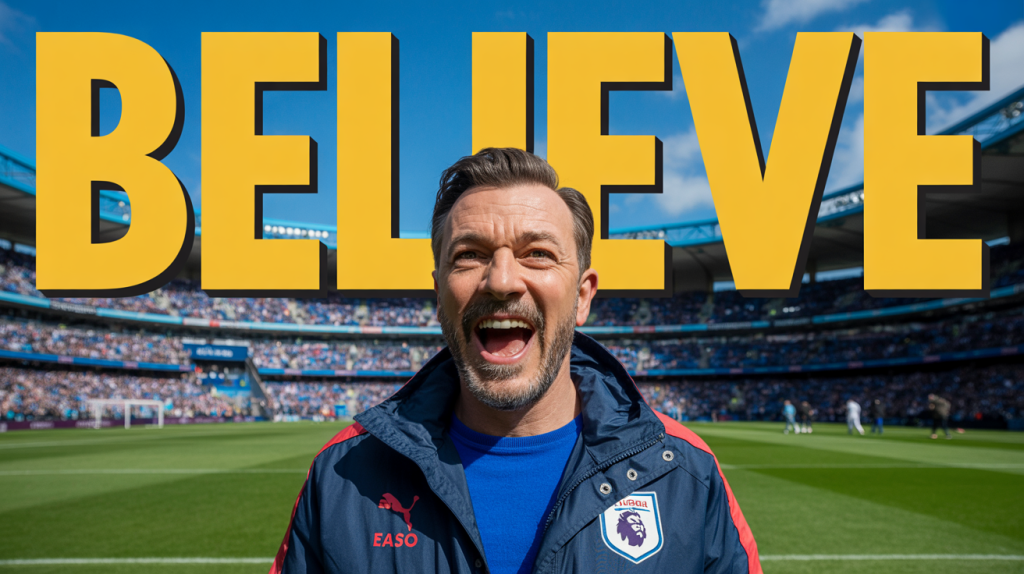Some of you may know my liking of Ted Lasso and that in my office, there are posters of things and quotes of the series that adorn the walls - but following on from the thoughts on Squid Games last week, it got me thinking about this show too.
On the surface, it’s a feel-good comedy about an American football coach who somehow ends up managing a struggling English football club… without even knowing the rules of the game.
But behind the humour, the biscuits, and the moustache, there’s something much deeper going on - something every business owner can learn from.
You see, Ted Lasso isn’t about sport. It’s about leadership, belief, and how we show up for others when pressure is mounting and expectations are low.
And if you’ve ever run a team, led a project, or just tried to keep yourself afloat as a business owner, you’ll recognise the lessons in Ted’s story.
I am amazed as to how close these shows relate to business and how some of the key themes mean so much in every day entrepreneurialism.
Let me break a few of them down for you.
1. You Don’t Need to Have All the Answers to Lead
Ted shows up in a new country, in a new sport, with no experience - but he’s not pretending to be something he’s not. He doesn’t bluff, bluster, or fake authority.
He leads with humility, curiosity, and confidence in the people around him.
In business, so many owners feel like they have to be the expert in everything: sales, marketing, hiring, finance, operations.
But the truth is, you don’t have to know everything - just how to bring the best out in others who do.
Good leaders don’t dominate. They delegate, they learn, and they lift people.
2. Culture Eats Strategy for Breakfast
Ted doesn’t walk in with a complex tactical plan or a slick PowerPoint. He builds trust first. He understands that high performance comes from people feeling seen, supported, and valued.
In business, culture is often treated like a “nice to have” just something you focus on after the targets are hit. But Ted Lasso flips that on its head. He proves that culture isn’t soft; it’s structural. It underpins results. It turns a group into a team.
And if your business feels like it’s lacking direction or energy, it might not be your plan - it might be your culture.
3. Optimism Isn’t Naive...It’s a Strategy
Ted gets mocked for being relentlessly positive. But that optimism? It’s not blind. It’s intentional.
He chooses to believe in people before they believe in themselves. He gives second chances. He listens more than he talks. And it’s that belief that pulls people forward.
In your business, how often are you the source of belief - for your team, your customers, even yourself?
Optimism doesn’t mean ignoring problems. It means approaching them with faith that they can be solved. That energy creates momentum, and momentum wins games, closes deals, and builds great companies.
4. Everyone’s Fighting a Battle You Can’t See
Without giving too much away, Ted carries his own emotional weight. So do others around him. And that reminder, again and again, that people are more than their role, more than their performance, is a powerful business lesson.
Whether it’s a staff member under-delivering or a client suddenly ghosting you, pause before you react. Ask more questions. Dig deeper. Sometimes your job as a leader isn’t to fix...it’s to understand.
The world of small business can feel transactional at times. But Ted Lasso shows us the power of making it more human. And ironically, by being more human - you get better results.
Ted Lasso isn’t a how-to guide. It’s not a masterclass in KPIs or scaling models.
But it is a reminder that the greatest asset in your business is people. And how you treat them.
It’s a case study in consistent, values-led leadership.
And it made me ask myself some tough questions:
- Am I creating belief in others - or just measuring performance?
- Am I building a business that’s based on trust - or control?
- Am I leading like I know it all - or leading like someone who wants to learn?
I don’t know about you, but those are the questions that stick.
So whether you’ve seen it or not, here’s what I’d leave you with:
You don’t have to be perfect. But you do have to show up with purpose.
The rest will follow.
Believe.
James
